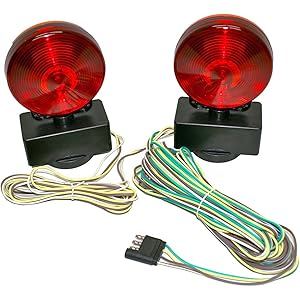As the winter months approach, I find myself reflecting on the various challenges that come with living in a mobile home. One question that often plagues my mind is: will my mobile home pipes freeze? The thought of waking up to frozen pipes and potential damage sends shivers down my spine. Over the years, I’ve gathered a wealth of knowledge on how to protect my home from the bitter cold, and I want to share these insights with you. In this article, I’ll explore the risks of frozen pipes in mobile homes, share valuable tips to protect your plumbing, and provide you with essential information to help you prepare for winter. Let’s dive in!
The Risks of Frozen Pipes in Mobile Homes
Living in a mobile home comes with unique advantages, such as affordability and mobility. However, it also presents specific risks, especially during the winter months. One of the most pressing concerns is the freezing of pipes. When the temperature drops, the water inside the pipes can freeze, leading to several problems:
- Pipe Bursts: When water freezes, it expands. This expansion can cause pipes to crack or burst, leading to costly repairs.
- Water Damage: A burst pipe can lead to significant water damage in your home, affecting walls, floors, and personal belongings.
- Inconvenience: Frozen pipes can leave you without water, disrupting your daily routine.
Understanding these risks is the first step in ensuring your mobile home remains safe and warm throughout the winter. Now, let’s explore some effective strategies to prevent your pipes from freezing.
Understanding How Freezing Occurs
Before I delve into prevention methods, it’s essential to understand how and why pipes freeze. The primary culprit is low temperatures, typically below 32°F (0°C). Here’s how it happens:
- When temperatures drop, the water inside the pipes cools down.
- If the temperature remains at or below freezing for an extended period, the water can freeze.
- As the water freezes, it expands, putting pressure on the pipe walls.
- Eventually, the pressure can cause the pipes to crack or burst.
It’s also important to note that pipes located in unheated areas, such as under the mobile home or in exterior walls, are at a higher risk of freezing. Now that I’ve laid the groundwork, let’s look at some practical tips to protect your mobile home this winter.
Essential Tips to Prevent Frozen Pipes
1. Insulate Your Pipes
One of the most effective ways to prevent frozen pipes is to insulate them. Insulation helps to maintain a stable temperature around the pipes, reducing the risk of freezing. Here are some options I recommend:
- Pipe Insulation Sleeves: These foam sleeves are easy to install and can significantly reduce heat loss.
- Heat Tape: This electrical tape can be wrapped around pipes to provide additional warmth during frigid temperatures.
- Insulation Blankets: For larger pipes, consider using insulation blankets for extra protection.
2. Keep Your Home Heated
Maintaining a consistent temperature in your mobile home is crucial during winter. I personally set my thermostat to at least 55°F (13°C) even when I’m not home. This simple step can help prevent pipes from freezing. Here are a few additional heating tips:
- Open cabinet doors under sinks to allow warm air to circulate around the pipes.
- Consider using space heaters in particularly cold areas of your home.
- Seal any drafts around windows and doors to retain heat.
3. Let the Faucets Drip
Allowing a small trickle of water to flow through your faucets can help prevent freezing. I’ve found that running water creates movement, making it less likely to freeze. Here’s how to do it:
- Choose the faucets that are located farthest from the main water supply.
- Let both hot and cold water drip slightly.
- Make this a habit during extreme cold spells.
4. Seal Cracks and Openings
To protect your pipes effectively, it’s essential to seal any cracks or openings in your mobile home. Cold air can seep in through these gaps, increasing the risk of frozen pipes. Here’s what I do:
- Inspect the exterior of your home for visible cracks and gaps.
- Use caulk or expanding foam to seal any openings.
- Don’t forget to check around windows and doors!
5. Prepare Your Skirting
The skirting around your mobile home plays a significant role in protecting your plumbing. If it’s damaged or missing, cold air can directly affect your pipes. Here’s how to prepare your skirting:
- Inspect for any damages or gaps.
- Repair or replace damaged skirting to ensure a tight seal.
- Consider adding insulation to the skirting to provide extra protection.
Case Studies: Real-Life Examples of Frozen Pipes
To better understand the impact of frozen pipes, let me share a couple of real-life examples that illustrate the importance of taking preventive measures.
Case Study 1: The Johnson Family
Last winter, the Johnson family experienced a nightmare when their pipes froze due to neglecting insulation. They lived in a mobile home without proper pipe insulation, and during a severe cold snap, they woke up to discover that their kitchen sink had burst. The resulting water damage cost them thousands in repairs and left them without water for weeks. This incident could have been easily avoided with proper insulation and heating.
Case Study 2: The Ramirez Mobile Home Park
In another instance, a mobile home park in my area implemented a community-wide initiative to educate residents about preventing frozen pipes. They organized workshops on insulation techniques and provided resources to help residents prepare for winter. As a result, the incidence of frozen pipes significantly decreased, showcasing the power of community support and proactive measures.
Statistics: The Importance of Prevention
According to the American Society of Home Inspectors, frozen pipes account for approximately 250,000 home insurance claims each year in the United States. The average claim for water damage caused by frozen pipes is around $5,000. These statistics highlight the financial impact of neglecting pipe protection during winter. By taking preventative measures now, you can save yourself from significant stress and financial burden later.
What to Do If Your Pipes Freeze
Despite our best efforts, sometimes pipes still freeze. If you find yourself in this unfortunate situation, here’s what to do:
- Turn Off the Water Supply: Immediately shut off the main water supply to prevent further damage.
- Thaw the Pipes: Use a hairdryer, heating pad, or warm towels to gently thaw pipes. Avoid using open flames, as this can damage the pipes.
- Call a Professional: If you cannot locate the frozen section or if the pipes have burst, it’s time to call a plumber.
Concluding Thoughts
As I reflect on the importance of protecting our mobile home plumbing, I’m reminded that taking proactive steps now can save us from significant headaches later. The risks of frozen pipes are real, but with the right preparation and knowledge, we can safeguard our homes against the winter chill. Remember to insulate your pipes, maintain a consistent temperature, seal any gaps, and let your faucets drip when necessary. By implementing these strategies, you can enjoy a warm and worry-free winter.
FAQ
1. How can I tell if my pipes are frozen?
If your faucets are not producing water or if you notice frost on the outside of the pipes, these may be signs of frozen pipes. Additionally, if you hear unusual sounds when trying to run water, it could indicate freezing.
2. Can I use a space heater to thaw frozen pipes?
Yes, a space heater can be used to warm the area around frozen pipes, but ensure it is placed safely and monitored closely to prevent fire hazards.
3. What are the best insulation materials for mobile home pipes?
Foam pipe insulation sleeves, heat tape, and insulation blankets are some of the best materials to insulate pipes effectively.
As we embrace the winter season, I encourage you to take these tips seriously. Protect your home, your family, and your peace of mind. If you found this article helpful, please consider sharing it with friends and family. Don’t forget to sign up for our newsletter for more tips on home maintenance and winter preparation!
MaxxHaul 80778 Magnetic Towing Light Kit (Dual Sided for RV, Boat, Trailer and More DOT Approved)
$17.89 (as of November 15, 2025 07:52 GMT -03:00 - More infoProduct prices and availability are accurate as of the date/time indicated and are subject to change. Any price and availability information displayed on [relevant Amazon Site(s), as applicable] at the time of purchase will apply to the purchase of this product.)
Sign up for our newsletter and stay up to date with exclusive news
that can transform your routine!





